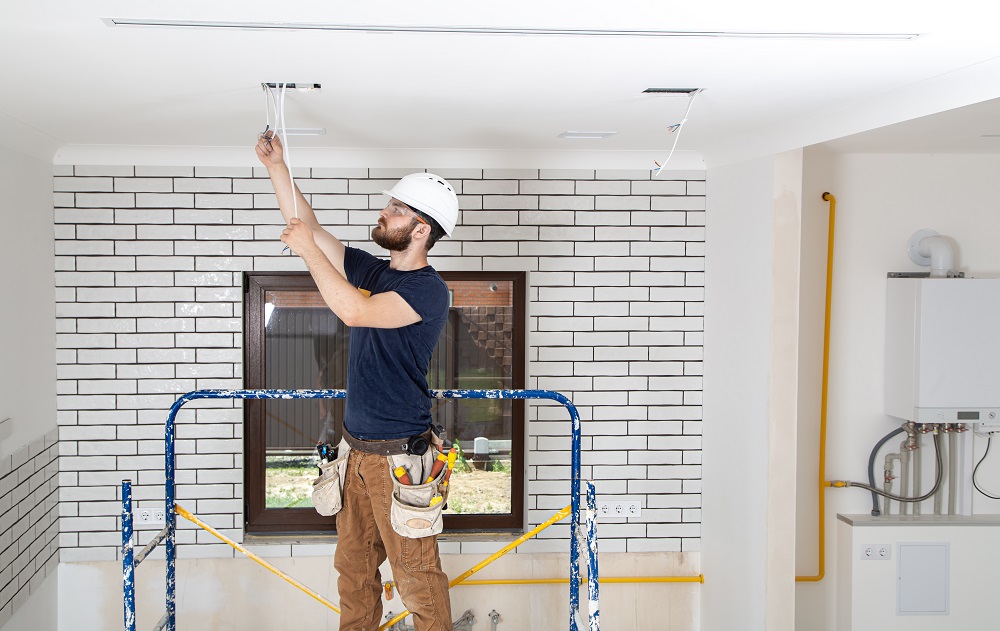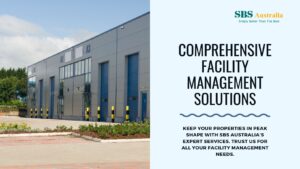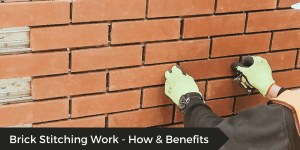As a landlord, you have to deal with a lot of responsibilities. Whether you do everything on your own, or you hire a contractor, you cannot simply ignore property maintenance. You need to consider it as a responsibility of yours to keep the property in livable condition for all the tenants. While keeping that in mind, let’s go through these 10 useful tips on how to deal with property maintenance.
Define roles early as much as possible
One of the most crucial responsibilities you have regarding upkeep is the lease. Establish your renters’ obligations as soon as possible, before they move in. Typically, your renter is in charge of simple maintenance and upkeep. The more substantial tasks, such as repairing the electrical and plumbing systems, fall within your purview as a landlord. In addition, you take care of routine wear and tear and prepare the property again for subsequent renters. Always let your renters know how to contact you and when they may anticipate a callback from you. The greatest approach to stop issues from developing later is to keep lines of communication open. Conflicts may be defused via effective communication.
Save some money for a rainy day
Something will eventually need repair. Maintain a rainy day reserve that you may utilize for property upkeep and repairs. The delivery of a new stove or refrigerator to your renter shouldn’t have to await until your subsequent paycheck. You could even need to repair the premises before a claim is approved or locate your renter temporary housing. The unexpected must be anticipated.
For example, plumbing repairs and water damage repairs are quite unavoidable. When you encounter such a problem, you will need to get in touch with an emergency service as soon as possible. It will help you with minimizing further damage that will happen to your property. While keeping that in mind, you need to save enough money, which you can use for such emergencies.
Get the help of experts when needed
You will sometimes need to hire pros unless you are a skilled handyman. To be ready for an emergency, you should be aware of where the property’s electricity panel, water shut-offs, or gas shut-offs are located. In several areas, professional assistance is required for electrical, plumbing, and HVAC repairs. To be sure you’re adhering to the rules appropriately, check with your neighborhood building authority.
Automate things as much as you can
Even the most diligent landlords sometimes forget to replace the smoke alarm batteries for their tenants. Select goods with lengthy battery lifetimes, automated on/off features, or tamper-resistant construction. Consider installing programmable thermostats, solar pathway lighting, or motion sensors outside the home. The initial expense of these improvements may be more but maintaining a safe and living environment on your property is well worth it.
Record everything
Projects as well as repairs may well be tax deductible since property management is a company. Make sure to keep track of all of the time you spend on tasks and to preserve all of your receipts.
Make your life easy with gardening
You may save a lot of hassles by keeping everything same, including the paint, hardware, flooring, and appliances. Throughout all of your properties, use the same paint. You won’t have to worry about trying to recall which apartment has in that color paint.
Ensure uniformity everywhere
Don’t alter your land or property unless it is really necessary. All you need to do to make your home seem decent is keep the landscape basic enough. You won’t have to give yourself or your renters extra work if you do this. Allow your renters to buy a planting box for the property if they have a green thumb.
Make a schedule for preventive maintenance
You may identify issues before they cost you or your renters money by making a program for preventive maintenance. Include a condition in the lease that requires your renters to notify you of issues as they arise or pay a penalty. Every few months, you should also have the property inspected, paying attention to every inch of the house. Nothing in your home will endure forever, so make repairs when necessary in advance. Consider purchasing a new refrigerator when you find a good bargain.
Establish the Minimum Requirement for Your Property
Make sure you take pictures of the apartment or home’s condition before your renter comes in. To ensure you don’t forget anything, utilize a move-in/move-out checklist and your phone to shoot images and videos. This avoids arguments and provides evidence in the event that you need to withdraw a portion or the whole security deposit due to damages that go above and beyond normal wear and tear. While dents and scratches on the walls and floors are to be expected, other damages such as holes in the walls, broken windows, or soiled carpets warrant deductions from a tenant’s security deposit. Inform your renter of the condition you anticipate the property to be when they leave when they move in.
Final words
As you can see, dealing with property maintenance is not an easy thing to do at all. However, there are few things that you will be able to do in order to stay away from hassle associated with property maintenance. As a property owner, you need to have a clear idea on what you should do, so that you can make your life easy with maintaining your property. Then you will be able to stay away from the hassle of it and take care of your property in its perfect condition.







